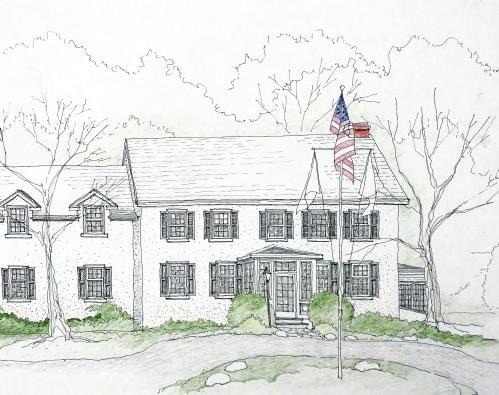

STAT E OF THE KITC HE N
VHC CLUBHOUSE
1. Create the right “infrastructure”

2. Create a casual dining experience that is both in comfortable
FITNESS FACILITY
3. Design a new fitness center in c with a much-needed pool house renova
L OOKIN G FORWARD
What are the Commi ee’s next steps?



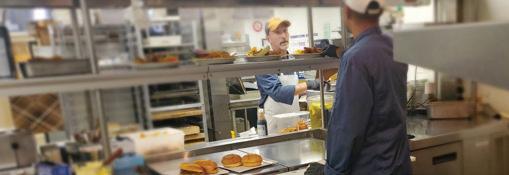
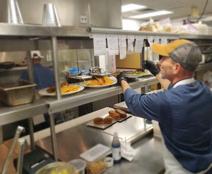
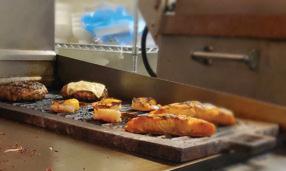
August 2024
Wells, Tanks, and Lines – Oh My!
5 Wells, 12 Septic Tanks, and approximately 6,835 Feet of Utility Lines
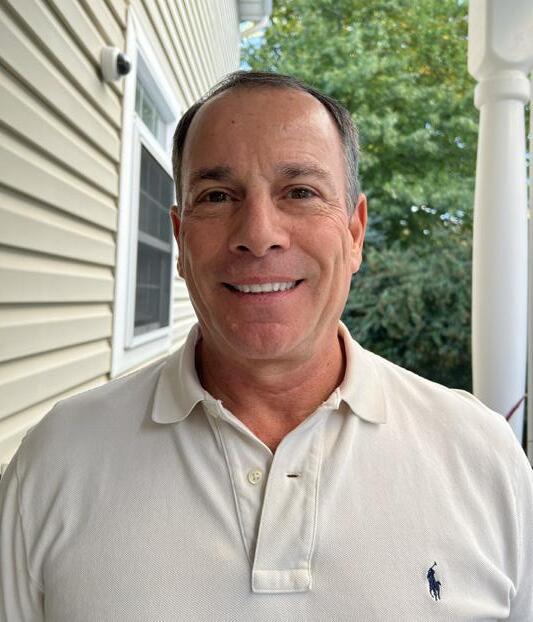

Vicmead is not connected to the Wilmington city grid, so Vicmead depends entirely on pumps and wells for water. We’ve got a mix of five wells serving everything from the clubhouse to the fitness facility to the stables. They range in output from gushing 65 gallons/minute down to a more modest 9 gallons/minute, which accommodate different needs across the Vicmead campus (i.e. large events, pool filling, grounds keeping). One might think, “Well, just pump more water!” However, over-pumping our wells not only depletes the groundwater aquifer (or source), but also rapidly increases the rate of corrosion, iron crustacean, and biofouling related problems with the well pipes. This can result in premature pump and well failures, which we’ve experienced twice already when we had to abandon wells in 2000 and 2019."
Jules Paoli
What is our biggest challenge when it comes to water on the Vicmead Campus?
Jules:
"The biggest challenge is keeping everyone hydrated and happy during those busy summer stretches. We have to be careful because too much strain on the wells will shorten their life. To plan appropriately, we’ve stashed about 13,540 gallons in separate tanks around the property for use when our wells need a breather. In addition, the pool serves as the primary water source for the Clubhouse’s fire suppression system should it ever be needed."

Due to increased member utilization, lawn irrigation installation, and a shift to internally filling the pool, water usage has increased significantly.
The balance between meeting ongoing water needs and contingency planning is delicate. How do we ensure the water is safe for consumption and Campus use?
Jules:
“Ah, first and foremost is chlorine! We need it to keep the water clean and safe, but chemicals are a double-edged sword. All our well water gets dosed with chlorine for sanitation (the alternative to UV light), and a second treatment to make it potable, but this is also rough on pipes and pump gear. Because the Clubhouse’s fire suppression system depends on the pool water, it’s caused us some pricey repairs during cold snaps. Using the pool is great for the quantity of water needed for the sprinkler systems, but it also reduces the life of equipment. For example, the current pump installed in 2007 would normally have a 13-year lifespan. However, due to the effects of chlorine use, it was rebuilt in 2012 and then fully replaced in 2023. We anticipate another capital expense in approximately 4 years due to the current configuration.”
Why do the water need and other vital utilities on the Vicmead Campus need to be considered at this critical point in the proposed renovation designs?
Jules:
“Looking ahead, we know these systems need some TLC. We are starting to experience the impacts and failures of systems which were not designed to meet the Club’s current needs. With the proposed renovations, it’s an opportunity to address these challenges with the goal of ensuring we have the proper number and size of wells needed, any additional water storage needs, and equipment. It’s about keeping Vicmead’s underground systems in the best possible condition so that our Club can continue to seamlessly serve our Members above ground.”

September 2024
Part 2:Wells, Tanks, and Lines – Oh My!
5 Wells, 12 Septic Tanks, and approximately 6,835 Feet of Utility Lines
As the Development Ad-Hoc Committee continues to work on the Concept Design of the Clubhouse and surrounding site, we are committed to continuing to sharing information about our process. As we discussed in the August Newsletter, the campus infrastructure is critical in the planning phase. For the second installment of this series, we move from wells and water to our septic systems. Jules Paoli, Facilities Director, provides insight on the septic considerations on Vicmead’s campus.
Septic Systems & Pumps at Vicmead: An Interview with Jules Paoli
Can you help us understand how Vicmead's septic system works throughout the property?
Jules:
"Our sprawling multi-purpose property has a combination of three types of septic systems: standard, low-pressure dose, and supplemental treatment.

At the Vicmead Clubhouse we have a standard/supplemental treatment system with a grease trap (installed in 1999), a Klargester with a low pressure micro-drip system which also handles the clubhouse and pool/poolhouse septic system. The micro-drip is why our front field is always green!
A newer low-pressure system was recently installed at the Stables in 2020. The Indoor racquets building utilizes a low-pressure septic system and pump tank installed in 1997."
What septic considerations do we need to think about as we consider our proposed renovation project?
Jules:
"From a design perspective, we need to consider property setbacks and restrictions, as well as not infringing on our established micro-drip system and other related septic fields. When teh time comes for a new septic field, we've already completed the pre-survey work and we've determined that one can be added to our existing system (closest to Owls Nest Road).
answer continued
There are a few other facts that we must take into considersation as well:
• The pool is on this system
• The Indoor Racquets building's septic field is located below the building. Because it is our oldes system, we pay more attention to these units.
• The Stables unit is the newest system and has more capacity. The current units were installed up to 27 years ago. Newer systems have more advanced technology, efficiencies and equipment options. To avoid a failure or any issue that would impact Member Experience and the Club’s ability to operate safely, we must keep our systems current"
How do we manage the capacity and ensure the systems remain an asset for the Club?
Jules:

"We [the Facilities team] take weekly readings to monitor the health of our septic system, and to ensure required maintenance and part replacement are coordinated well in advance of a failure."

